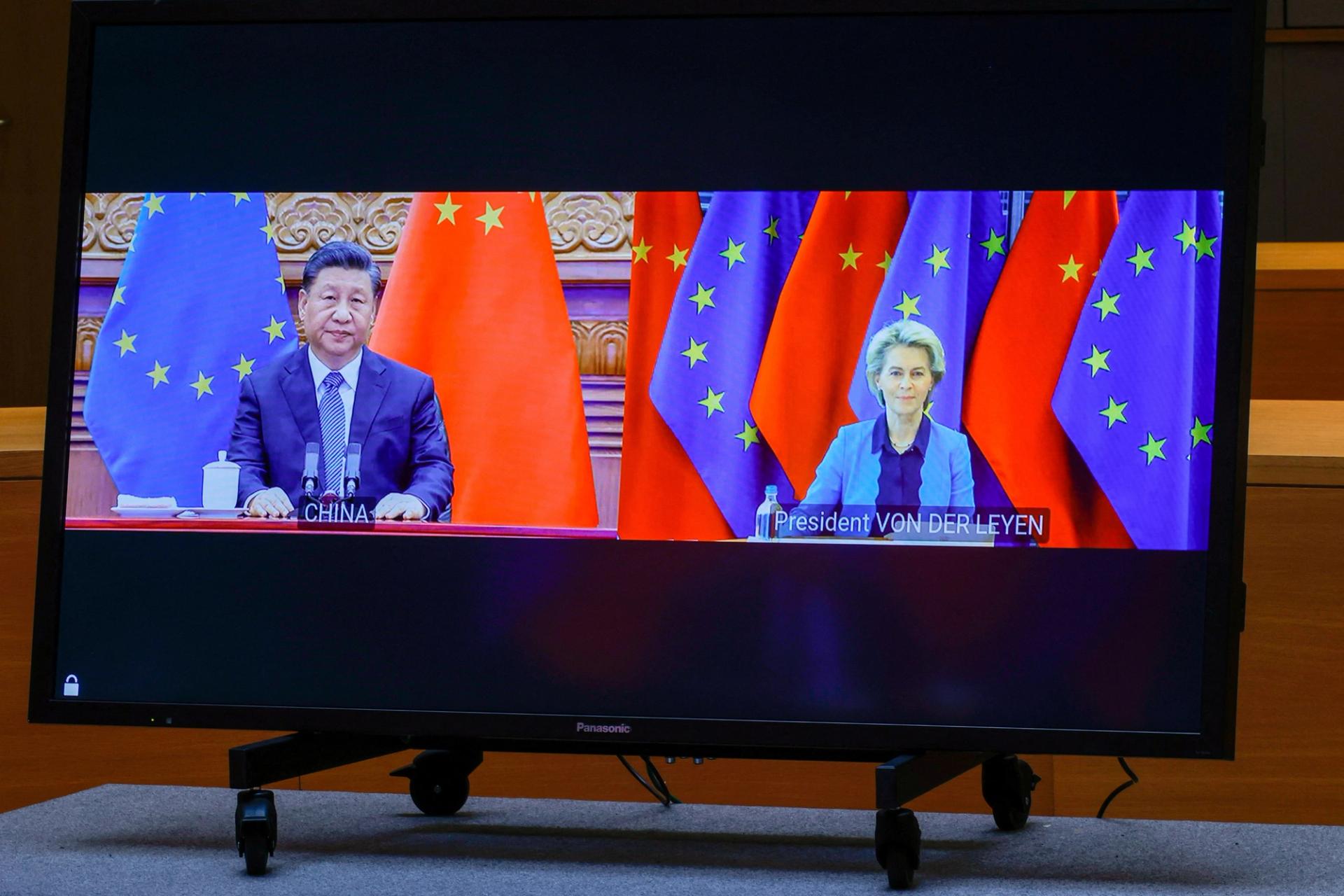The News
EU delegates will meet with Chinese leaders in Beijing on Thursday, marking the first in-person summit between the two global superpowers since 2019.
China’s foreign ministry said the two sides will discuss critical economic issues, emphasizing that Beijing’s and Brussels’ “common interests far outweigh our differences.”
SIGNALS
China’s relationship with Russia will be a central focus for the EU delegates. The South China Morning Post reported that EU leaders will personally ask Chinese leader Xi Jinping to control 13 Chinese entities accused of circumventing sanctions on Moscow, and that the EU is prepared to include Chinese firms in future sanctions if Xi does not act. Analysts are unclear about who will prevail during the negotiations. China-watcher Sari Arho Havrén noted that Beijing is well aware of “faltering Western aid capacity and will” to support Ukraine, which doesn’t give Brussels the upperhand. But trade policy adviser Nicolas Köhler-Suzuki argued that the EU still has substantial economic leverage over China.
Chinese media is emphasizing the need for Europe to redefine China as a “partner” instead of a “rival.” Writing for Shenzhen Media Group, Sun Yat-Sen University geopolitics professor Sun Xingjie compared current tensions with Europe to those felt during the Cold War, warning that global stability is at risk if Beijing and Brussels “draw lines based on ideology and values.” But Europe and China can circumvent this fallout by focusing on mutually beneficial industries, particularly in the electric-vehicle industry, Sun argued. Europe can benefit from trading its abundance of minerals needed for the production of EVs with China, which in turn could help the two countries reach their goals of reducing greenhouse gas emissions. “No country can create world-leading technologies and industries in isolation,” Sun wrote.
“EU leaders cannot ignore China’s military provocations against Taiwan,” wrote former NATO Secretary-General Anders Fogh Rasmussen in the Financial Times. It would “be a mistake” for EU leaders to “take the easy path” and avoid any difficult conversations regarding the island’s sovereignty, as giving way for China to take control of Taiwan would wreak havoc on the global economy, Rasmussen argued, citing a Rhodium Group analysis that a conflict could trigger $2 trillion of economic losses. Bringing up Taiwan will put leaders in an uncomfortable position with Xi for a few days, but “staying silent will cost Europe far more in the long run,” Rasmussen wrote.

